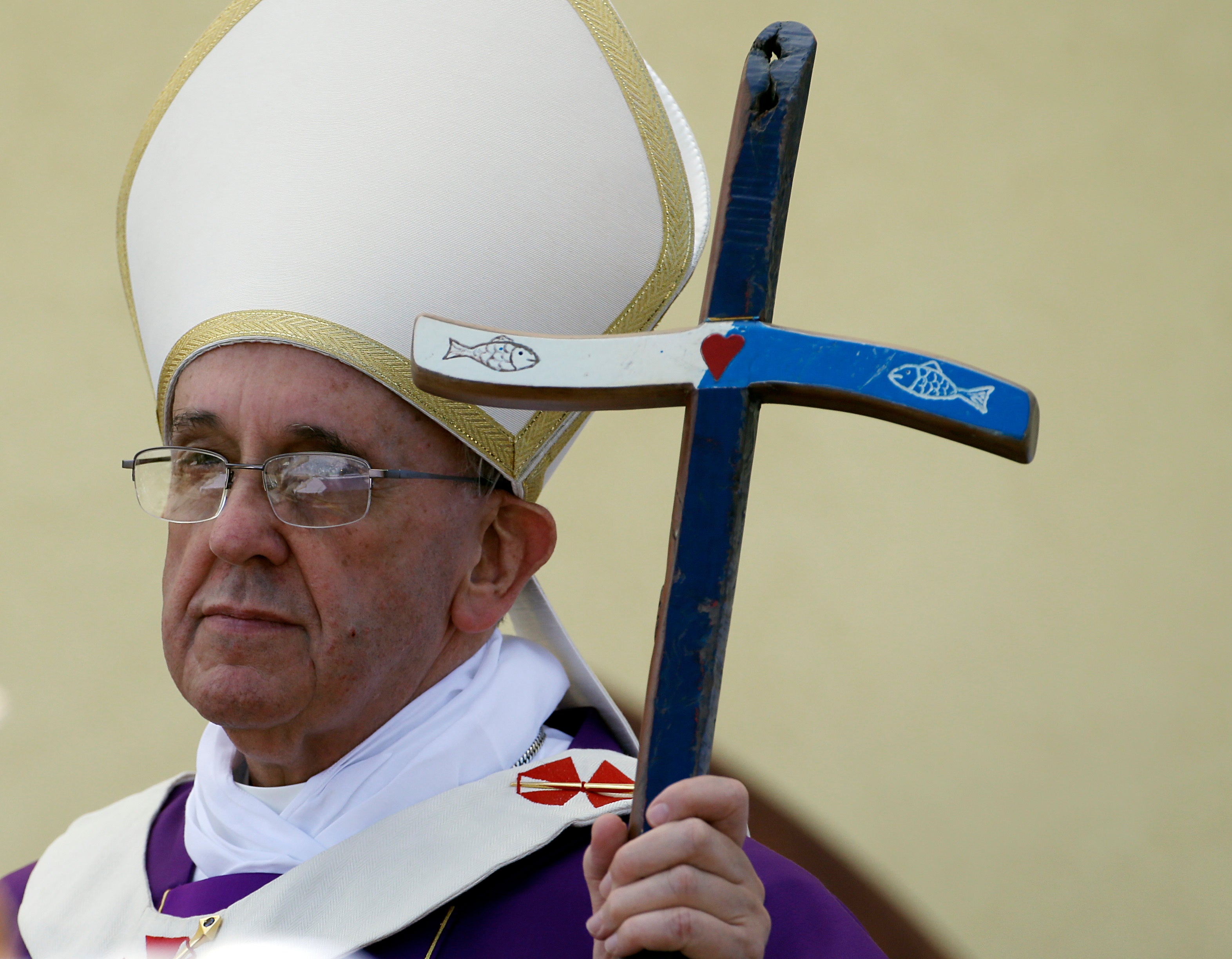Your support helps us to tell the story
From reproductive rights to climate change to Big Tech, The Independent is on the ground when the story is developing. Whether it's investigating the financials of Elon Musk's pro-Trump PAC or producing our latest documentary, 'The A Word', which shines a light on the American women fighting for reproductive rights, we know how important it is to parse out the facts from the messaging.
At such a critical moment in US history, we need reporters on the ground. Your donation allows us to keep sending journalists to speak to both sides of the story.
The Independent is trusted by Americans across the entire political spectrum. And unlike many other quality news outlets, we choose not to lock Americans out of our reporting and analysis with paywalls. We believe quality journalism should be available to everyone, paid for by those who can afford it.
Your support makes all the difference.Transgender people can be baptised in the Catholic Church as long as there is no risk of causing scandal or confusion, the Vatican has said.
Pope Francis said a transgender person – those who have undergone hormone therapy and sex reassignment surgery – can receive baptism “under the same conditions of the other faithful”.
It is allowed “if there are no situations in which there is a risk of generating a public scandal or confusion among the faithful”, read the notice published by the Church’s doctrinal office on Wednesday.
The updated stance also said transgender people could be godparents at a baptism, but that a priest could refuse if there “is a risk of scandal, of undue legitimation or disorientation in the educational field of the ecclesial community”.
The publication, approved by Pope Francis on 21 October, was in response to six questions on the inclusion of LGBT+ people at baptisms and weddings by Bishop Jose Negri in Brazil.
It signals attempts by the Church to be more accommodating to transgender people.
And it has been welcomed by those who have pushed for greater acceptance in the Church. Francis DeBernardo, of the New Ways Ministry in Maryland, US, said: “It is a major step for trans inclusion ... it is big and good news.”
The Reverend James Martin, a Jesuit priest who has also campaigned for greater LGBT+ inclusion, said: “In many dioceses and parishes transgender Catholics have been severely restricted from participating in the life of the church, not because of any canon law, but stemming from the decisions of bishops, priests and pastoral associates.
“So the Vatican‘s statement is a clear recognition not only of their personhood, but of their place in their own church.”
The decreed also answered a question from Bishop Negri on whether same-sex parents who adopt or use a surrogate mothers could have a child baptised in the church, stating it could be done if there was “a well-founded hope that it would be educated in the Catholic religion”.
On whether a person in a same-sex relationship could be a godparent at a baptism, the statement said the person had to “lead a life that conforms to the faith”.
Mr DeBernardo said the document “proves that the Catholic Church can – and does – change its mind about certain practices and policies”, and suggested some diocesan anti-trans policies might now have to be rescinded.
In July, Pope Francis told a young transgender person that “God loves us as we are”, comments that were seen as another outreach to members of the LGBT+ community.
The Pope’s position on the LGBT+ community and gay marriage has been a subject of interest and discussion since he became the leader of the Roman Catholic Church in 2013.

Join our commenting forum
Join thought-provoking conversations, follow other Independent readers and see their replies
Comments